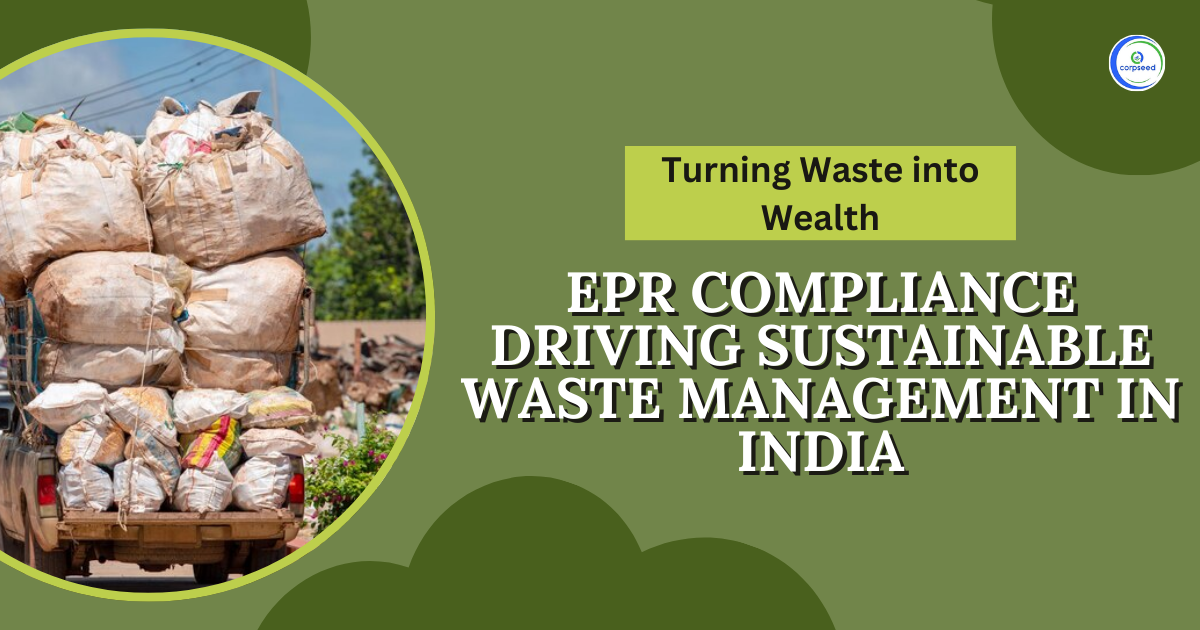Introduction: Ewaste Management
In this topic, we are going to cover the responsibility of Electronics Manufacturers, Electronics Producer, Electronics Bulk Consumer, Electronics Recycler, Electronics Dismantler, Electronics Dealer and Electronics Collection Centres
Table of Contents
- Introduction: Ewaste Management
- What is the Responsibilities of the Electronic Product Manufacturer?
- What is the Responsibilities of the Electronic Product Producer?
- If applicable,
- What is the Responsibilities of the Electronic Product Bulk Consumer?
- What is the Responsibilities of the Electronic Product Recycler?
- Responsibilities of State Government for environmentally sound management of E-waste.
--------------Blog Contact Form-------------
What is the Responsibilities of the Electronic Product Manufacturer?
Collect e-waste generated during the manufacture of any electrical and electronic equipment and channelize it for recycling or disposal:-
- Apply for an approval in Form 1 (a) in respect with the procedure prescribed under sub-rule (2) of rule 13 from the concerned State Pollution Control Board, which shall give the approval in accordance with Form 1 (bb).
- Safeguard that no damage is caused to the environment throughout storage and transportation of e-waste.
- Recollect records of the e-waste generated, handled and disposed in Form-2 and make such records accessible for scrutiny by the apprehensive State Pollution Control Board.
- The Yearly return in the Form-3 to the concerned State Pollution Control Board before the Jun 30th day.
What is the Responsibilities of the Electronic Product Producer?
The producer of electrical and electronic equipment listed in Schedule I shall be accountable for
Implementing the EPR with the following frameworks, namely:
- collection and channelization of e-waste generated from the ‘end-of-life’ of their products or ‘end-of-life’ products with same electrical and electronic equipment code and historical waste available on the date since these rules come into force as per Schedule I in line with the targets prescribed in Schedule III in Extended Producer Responsibility-Authorisation
- the tool used for channelization of e-waste from ‘end-of-life’ products including those from their service centres to authorised dismantler or recycler will be in accordance with the Extended Producer Responsibility - Authorisation. For instance the fluorescent and other mercury containing lamps, where recyclers are not available, and channelization may be from collection centre to Treatment, Storage and Disposal Facilitate.
- For dumping in Treatment, Storage and Dumping Facilitate, a pre-treatment is necessary to immobilise the mercury and reduce the volume of waste to be disposed off.
- EPR - Approval should comprise of general scheme for collection of waste that is Electrical and Electronic items from the market earlier, such as through dealer, collection centres, Producer Responsibility Organisation, through buy-back arrangement, exchange scheme, Deposit Refund System, etc. whether straight or through any official agency and channelizing the items so collected to authorised recyclers.
- As long as contact details such as address, e-mail address, toll-free telephone numbers or helpline numbers to consumer or bulk consumer through their website and product user documentation so as to simplify return of end-of-life electrical and electronic equipment.
- Building awareness done from media, magazines, advertisements, posters, or by any other means of communication and product user certification escorting the equipment, with regard to:-
- Information on address, e-mail address, toll-free telephone numbers or helpline numbers and web site.
- Information on hazardous constituents as detailed in sub-rule 1 of rule 16 in electrical and electronic equipment.
- Data on hazards of improper handling, disposal, accidental breakage, damage or improper recycling of e-waste.
- Guidelines for handling and disposal of the items after its use, along with the Do’s and Don’ts.
- Attaching a visible, readable and indelible symbol given below on the products or product user documentation to prevent e-waste from being released in garbage bins containing waste destined for disposal.
- Means and mechanism accessible for their consumers to return e-waste for recycling including the details of Deposit Refund Scheme.
If applicable,
The producer shall opt to implement Extended Producer Responsibility individually or jointly. In individual producer accountability, producer may set up his own assortment centre or implement take back system or both to meet Extended Producer Responsibility. In collective system, producers may tie-up as a associate with a Producer Responsibility Organisation or with e-waste exchange or both. It shall be compulsory upon on the individual maker in every case to seek Extended Producer Responsibility - Authorisation from Central Pollution Control Board in accordance with the Form-1 and the process laid down in sub-rule (1) of rule 13.
To provide information on the implementation of Deposit Refund Scheme to ensure collection of end-of-life products and their channelization to authorised dismantlers or recyclers, if such scheme is included in the Extended Producer Responsibility Plan. Provided that the producer shall refund the deposit amount that has been taken from the consumer or bulk consumer at the time of sale, along with interest at the prevalent rate for the period of the deposit at the time of take back of the end-of life product.
- The import of electrical and electronic items shall be allowed only to producers having Extended Producer Responsibility authorisation.
- Upholding records in Form-2 of the e-waste controlled and make such records available for scrutiny by the Central Pollution Control Board or the concerned State Pollution Control Board.
- The Producer will apply to the Central Pollution Control Board for authorisation in Form 1, which will thereafter grant the Extended Producer Responsibility.
- Procedure without Extended Producer Responsibility-Authorisation by any producer, as well-defined in this rule, shall be reflected as causing damage to the environment.
What is the Responsibilities of the Electronic Product Bulk Consumer?
Consumers or bulk consumers of electrical and electronic items are registered in Schedule I shall safeguard that e-waste generated by them is channelized through collection centre or dealer of official producer or dismantler or recycler or through the designated take back service provider of the producer to authorised dismantler or recycler.
Bulk consumers of electrical and electronic items are registered in Schedule I shall maintain records of e-waste generated by them in Form-2 and make such records available for scrutiny by the concerned State Pollution Control Board.
Consumers or bulk consumers of electrical and electronic items are registered in Schedule I shall ensure that such end-of-life electrical and electronic equipment are not admixed with e-waste containing radioactive substantial as covered under the provisions of the Atomic Energy Act, 1962 (33 of 1962) and rules made thereunder.
Bulk consumers of electrical and electronic items registered in Schedule I shall file annual returns in Form-3, to the concerned State Pollution Control Board on or before the 30th day of June following the fiscal year to which that return relates.
In the circumstance of the bulk consumer with multiple offices in a State, one yearly return combining information from all the offices shall be filed to the concerned State Pollution Control Board on or previously the 30th day of June subsequent the financial year to which that return relates.
What is the Responsibilities of the Electronic Product Recycler?
- Will ensure that the facilitate and recycling processes are in harmony with the standards or guidelines prescribed by the Central Pollution Control Board from time to time.
- Obtain approval from concerned State Pollution Control Board in accordance with the procedure under the sub-rule (3) of rule 13.
- Safeguard that no injury is caused to the environment during storage and transportation of e-waste.
- Safeguard that the recycling processes do not have any adverse effect on the health and the environment.
- make accessibility to all records to the Central Pollution Control Board or the concerned State Pollution Control Board for inspection.
- Safeguard that the fractions or material not recycled in its facilitate is sent to the respective authorised recyclers.
- Safeguard that residue created during recycling process is disposed of in an authorised treatment storage disposal facilitate.
- Uphold record of e-waste collected, dismantled, recycled and sent to official recycler in Form-2 and make such record prevailing for scrutiny by the Central Pollution Control Board or the concerned State Pollution Control Board.
- Heading yearly returns in Form-3, to the apprehensive State Pollution Control Board as the case may be, on or before 30th day of June subsequent the fiscal year to which that return relates.
- May accept waste electrical and electronic equipment or components not listed in Schedule I for recycling in case that they do not contain any radioactive material and same shall be specified while taking the authorisation from concerned State Pollution Control Board.
- Operation without Approval by any recycler, as well-defined in this rule, shall be measured as causing damage to the environment.
Responsibilities of State Government for environmentally sound management of E-waste.
Branch of Industry in State or any other government agency approved in this regard by the State Government, to safeguard earmarking or allocation of industrial space or shed for e-waste dismantling and recycling in the prevailing and upcoming industrial park, estate and industrial clusters.
Department of Labour in the State or any other government agency approved in this regard by the State Government shall:
- Ensure acknowledgement and registration of workers involved in dismantling and recycling;
- Assist formation of clusters of such workers to facilitate setting up dismantling facilities.
- Carry out industrial skill development activities for the workers involved in dismantling and recycling
- Carry out annual monitoring and to ensure the safety & health of workers involved in dismantling and recycling
State Government to organise a unified plan for effective execution of these provisions, and to acquiesce annual report to Ministry of Environment, Forest and Climate Change.
What is the Responsibilities of the Electronic Product Dismantler?
- Safeguard that the facilitate and dismantling processes are in accordance with the standards or guidelines prescribed by Central Pollution Control Board from time to time.
- Acquire authorisation from the concerned State Pollution Control Board in accordance with the procedure under sub-rule.
- Safeguard that no damage is affected to the environment throughout storage and transportation of e-waste.
- Safeguard that the dismantling processes do not have any adverse effect on the health and the environment
- Safeguard that dismantled e-waste are separated and sent to the official recycling facilities for recovery of materials
- Safeguard that non-recyclable or non-recoverable components are sent to authorised treatment storage and disposal facilities
- Uphold record of e-waste collected, dismantled and sent to official recycler in Form-2 and make such record available for scrutiny by the Central Pollution Control Board or the concerned State Pollution Control Board
- file a return in Form-3, to the concerned State Pollution Control Board as the circumstance may be, on or before 30th day of June subsequent the financial year to which that return relates
- Not practice any e-waste for rescue or refining of materials, unless he is approved with concerned State Pollution Control Board as a recycler for refining and recovery of materials
- Operation without Approval by any dismantler, as defined in this rule, shall be considered as producing damage to the environment.
What is the Responsibilities of the Electronic Product Refurbished?
Collect e-waste made during the process of refurbishing and channelize the waste to official dismantler or recycler through its collection centre.
Make an application in Form 1(a) in accordance with the procedure laid down in sub-rule (4) of rule 13 to the concerned State Pollution Control Board for grant of one time authorisation;
- the concerned State Pollution Control Board shall authorise the Refurbished on one time basis as per Form 1 (bb) and authorisation would be deemed as considered if not objected to within a period of thirty days
- the authorised Refurbished shall be required to submit details of e-waste generated to the concerned State Pollution Control Board on yearly basis;
- safeguard that no damage is caused to the environment during storage and transportation of e-waste;
- Safeguard that the refurbishing process do not have any adverse effect on the health and the environment;
- Safeguard that the e-waste thus generated is safely transported to authorised collection centres or dismantlers or recyclers
- File yearly returns in Form-3 to the apprehensive State Pollution Control Board, on or before the 30th day of June following the financial year to which that return relates
- Uphold records of the e-waste handled in Form-2 and such records should be available for scrutiny by the appropriate authority.
What is the Responsibilities of the Electronic Product Dealers?
- In the case the dealer has been given the accountability of collection on behalf of the producer, the dealer shall collect the E-waste by as long as the consumer a box, bin or a demarcated area to deposit E-waste, or through take back system and send the e-waste so collected to collection centre or dismantler or recycler as designated by producer.
- The dealer or retailer or e-retailer shall refund the amount as per take back system or Deposit Refund Scheme of the producer to the depositor of e-waste.
- Every dealer will safeguard that the e-waste thus generated is safely transported to authorised dismantlers or recyclers.
- Safeguard that no damage is caused to the environment throughout storage and transportation of e-waste.
What is the Responsibilities of the Electronic Product Collection Centre?
- Collect e-waste on behalf of producer or dismantler or recycler or refurbished including those arising from orphaned products: - Provided the collection centres established by producer can also collect e-waste on behalf of dismantler, refurbished and recycler including those arising from orphaned products
- Safeguard that the facilities are in accordance with the standards or guidelines issued by Central Pollution Control Board from time to time
- Safeguard that the e-waste collected by them is stored in a secured manner till it is sent to authorised dismantler or recycler as the case may be.
- Safeguard that no damage is caused to the environment throughout storage and transportation of e-waste.
- Uphold records in Form-2 of the e-waste handled as per the plans of Central Pollution Control Board and make such records available for scrutiny by the Central Pollution Control Board.
This portion of the site is for informational purposes only. The content is not legal advice. The statements and opinions are the expression of author, not corpseed, and have not been evaluated by corpseed for accuracy, completeness, or changes in the law.
BOOK A FREE CONSULTATION
Get help from an experienced legal adviser. Schedule your consultation at a time that works for you and it's absolutely FREE.
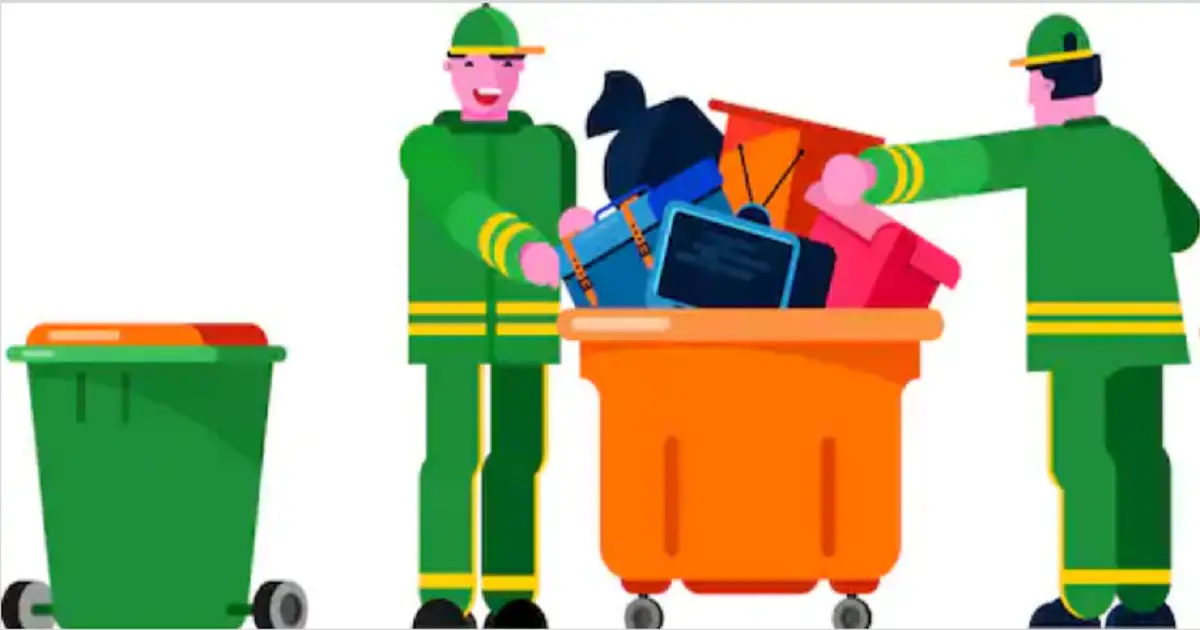

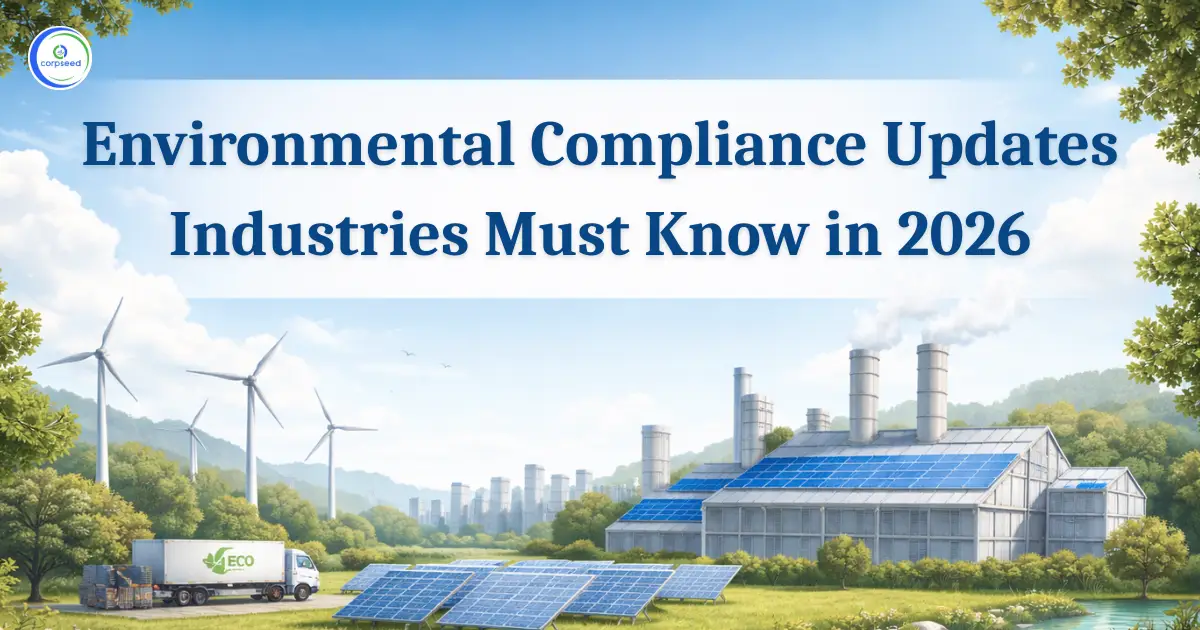
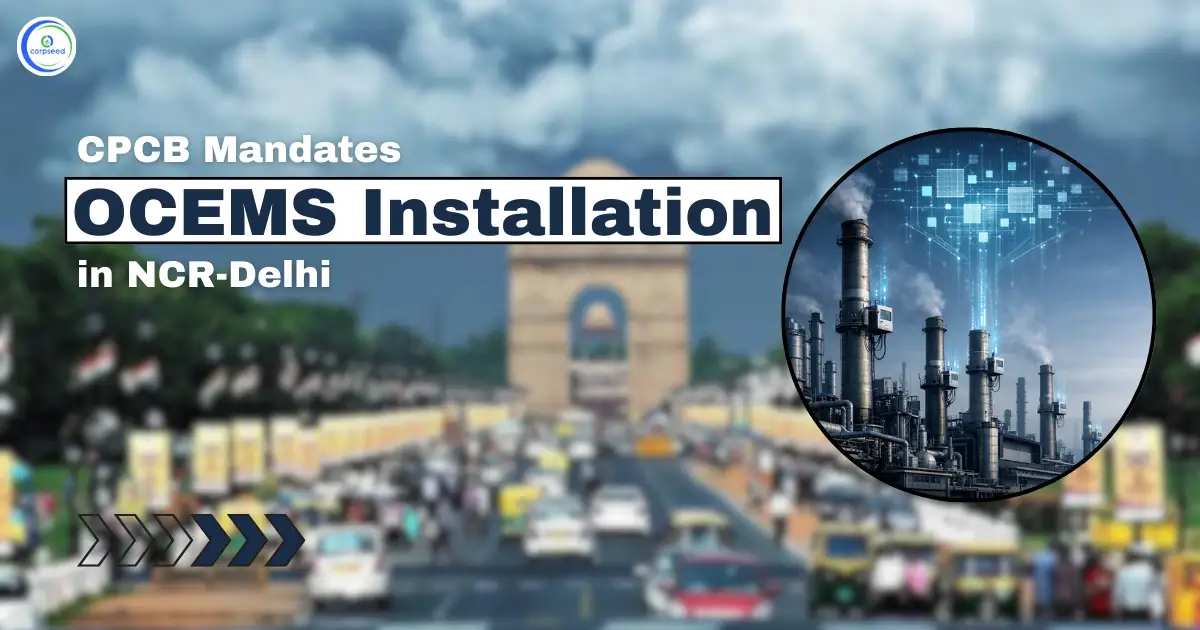
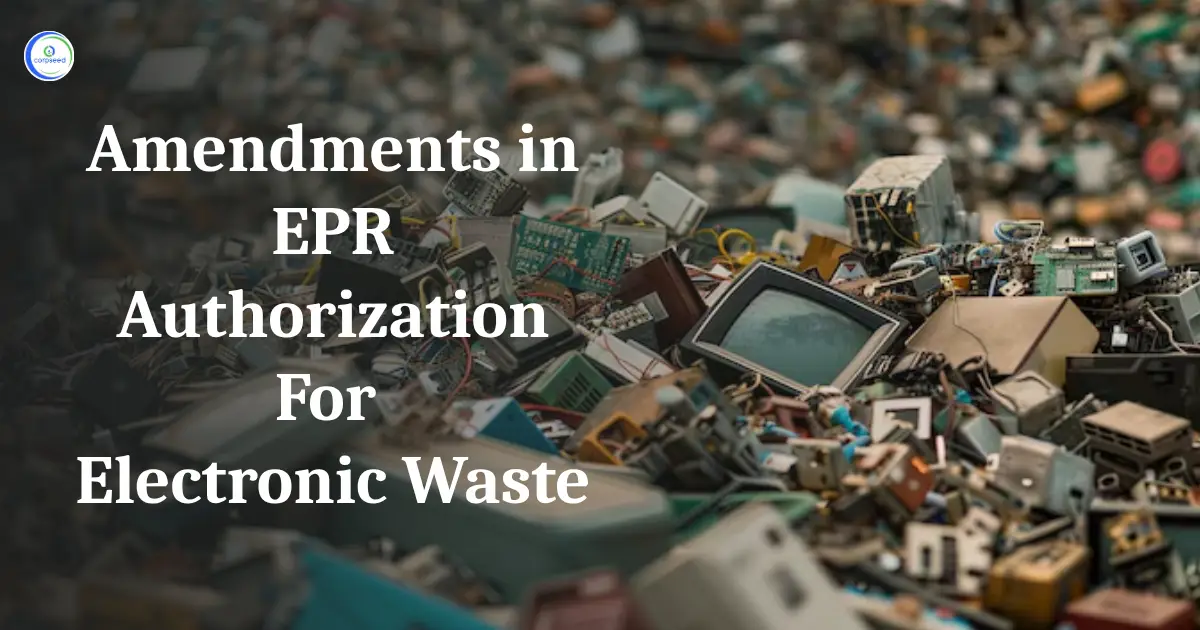
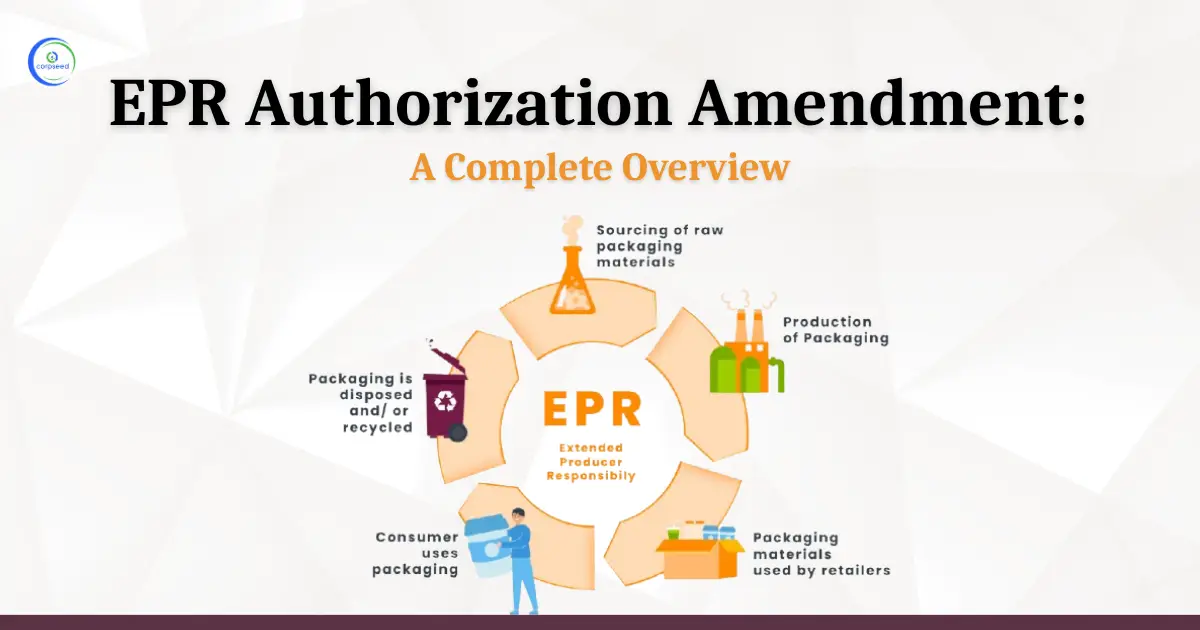
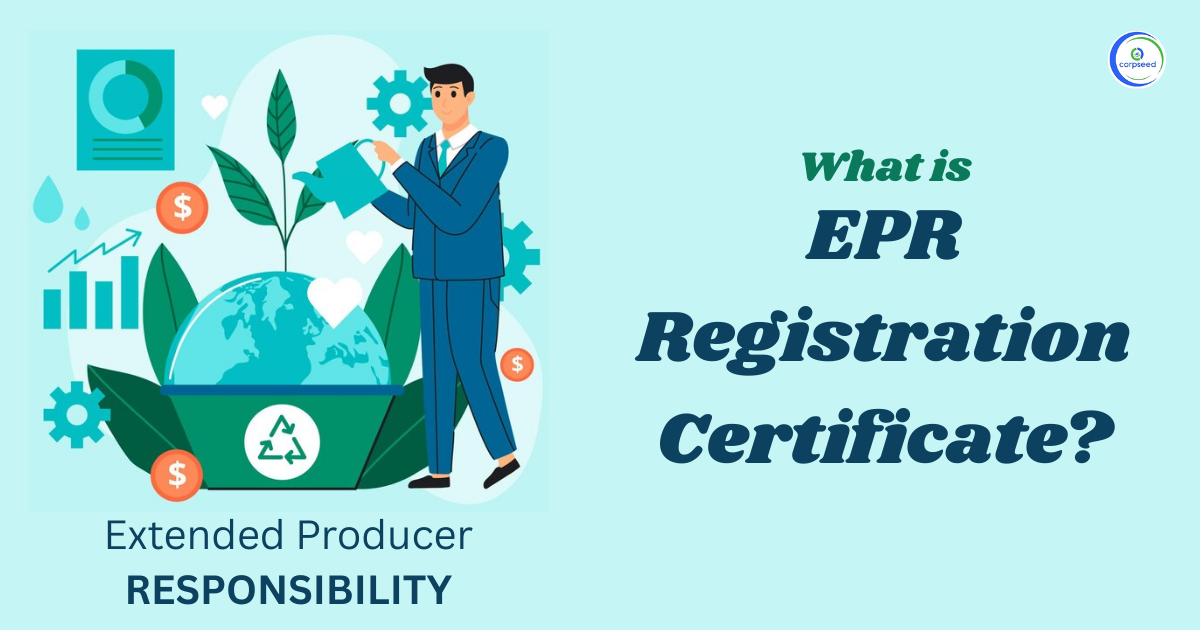
.webp)
